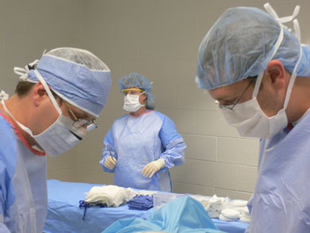There are various ways to donate tissue. As explained earlier, your pathologist uses tissue taken at the time of your biopsy and/or surgery to help make a diagnosis. There is often remaining tissue that you can donate to help researchers better understand cancer and/or to identify new biomarkers that may ultimately lead to new drugs.
 |
||||||||||||||||||||||||||||||||||||||||||||||||||||||||||||||
 |
||||||||||||||||||||||||||||||||||||||||||||||||||||||||||||||
 |
CISN Tip If you are unsure whether you have consented to donate your tissue, locate your consent for surgery and read the fine print. In the days, hours, and minutes leading up to surgery, some patients may be reluctant to read about the possible side effects of anesthesia or surgery and/or may later forget the details provided during the consenting process. |
|
||||||||||||||||||||||||||||||||||||||||||||||||||||||||||||
|
||||||||||||||||||||||||||||||||||||||||||||||||||||||||||||||
| |
||||||||||||||||||||||||||||||||||||||||||||||||||||||||||||||
Home | About Us | Services | Contact | Membership Recently Diagnosed | Cancer 101 | Survivorship | Research | Advocacy | Inspiration | Resources | Donate |
||||||||||||||||||||||||||||||||||||||||||||||||||||||||||||||
| Copyright © 2006-2013 CISN - All Rights Reserved. | ||||||||||||||||||||||||||||||||||||||||||||||||||||||||||||||
| Site Design by: Studio457 | ||||||||||||||||||||||||||||||||||||||||||||||||||||||||||||||


